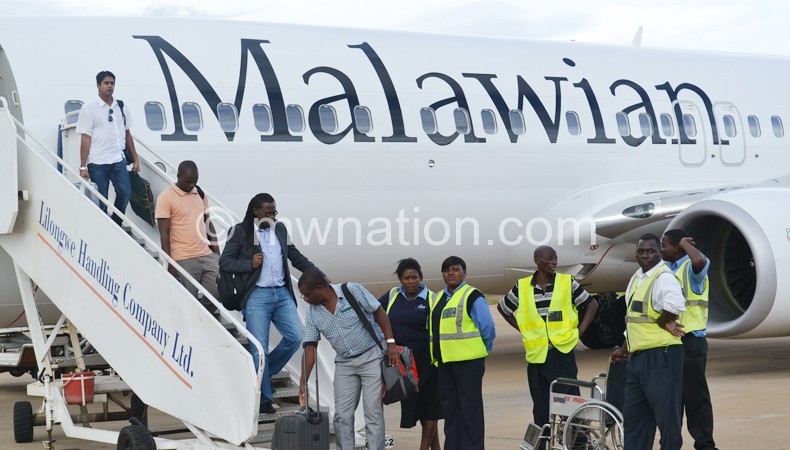Malawian Airlines’ hurdles not airline specific—PPPC
Public Private Partnership Commission (PPPC) chief executive officer Jimmy Lipunga has urged Malawians to remain patient with Malawian Airlines.
He said the challenges it is facing are not airline specific but regional and sectorial prevalent in the aviation industry.
In an interview last week, Lipunga said when an airline is making losses, it does not necessarily mean it is inefficient as there are other factors that are affecting airline companies in the region.

His views come at a time one of the giant airline companies in the region, South African Airways (SAA), is financially struggling.
Said Lipunga: “I am actually glad that in the recent past a major airline which I will not mention by name is also going through a lot of stress because this shows that the challenges that Malawian Airlines is facing are not airline specific but regional or even sectorial.
“In this region, the southern tip [of Africa], unlike other regions with six to eight-hour flights, nearly all our intercontinental flights are long haul and long haul flights are expensive as you need to develop sufficient yields and the necessary marketing structures that can support it.”
PPPC, a government agency, led the process of finding a strategic partner to invest in the national airline to replace the liquidlated Air Malawi Limited.
Lipunga said Malawians should be grateful that unlike other countries in the region, at least they have a reliable airline despite operating in a region where almost every airline is struggling.
“Malawian Airlines has to build new routes and build traffic in a region where we have the lucrative Johannesburg route and other marginal routes which are less impressive.
“The business module that was floated during the tender indicated that the airline would be making profits by the second year, but the reality on the ground has been different as the airline has struggled to gain the market share that is needed to make profits,” he continued.
Ministry of Transport and Public Works spokesperson James Chakwera is on record as having said that it could take a little while before the airline starts to make profits to enable government offload its shares, but it is taking the right path to grow its business.
The airline is operated by Ethiopian Airlines in a managerial contract in which it holds 49 percent of thestake while the Malawi government owns 51 percent and is expected to offload 20 percent to Malawians. n





